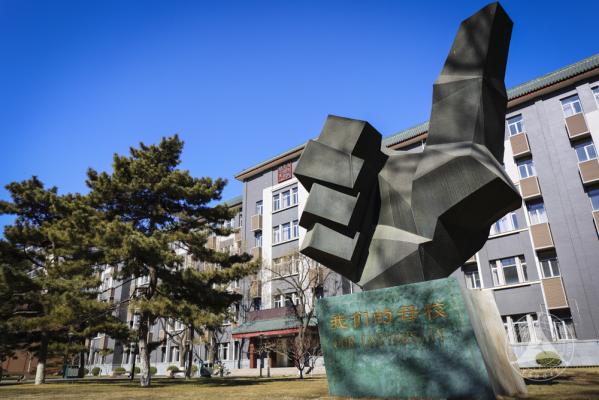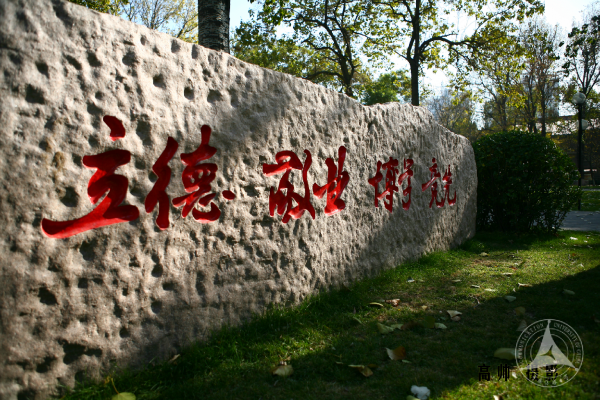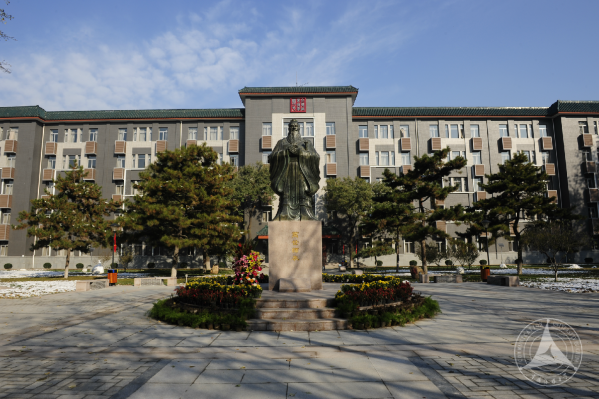


The Communication University of China (CUC) is one of the China’s key universities included in 211 Project and “985 Project Innovation Platform” under the Double First-Class Initiative, which is directly administered by the Ministry of Education. Founded in 1954, CUC was established under the direct care of seniorParty and state leaders, such as Liu Shaoqi and Zhou Enlai. It was the first communication university founded by the Party after the founding of New China. In August 2004, it was renamed from Beijing Broadcasting Institute to Communication University of China. For the past 70 years, CUC has adhered to the school motto of Integrity, Professionalism, Erudition and Competence, and carried forward the cultural genes of Loyalty, Confidence, Inclusiveness, and Competence.Upholding a mission to cultivate media professionals who promote morality and virtue, apply knowledge to practical affairs, CUC has trained a large number of outstanding media talents needed by the Party and the country, who are capable of facing future media challenges and excelling on the international stage. It has made significant contributions to the Party and the country's media industry as well as economic and social development, thus it is hailed as the Cradle of Chinese Radio, Television and Media Talents and a Renowned Institution in Information Communication.

CUC currently has two national Double First-Class disciplines: Journalism and Communication Studies, and Drama, Cinematic & Television Studies. It also has two high-precision, high-difficulty and high-tech disciplines in Beijing: Internet Information and Cultural Industry; three Beijing key primary disciplines: Journalism and Communication Studies, Art Theory, and Drama, Cinematic & Television Studies; four Beijing key secondary disciplines: Linguistics and Applied Linguistics, Communication and Information Systems, Electromagnetic Field and Microwave Technology, and Animation Studies; seven post-doctoral research programs; six primary discipline doctoral authorization points; 16 primary discipline master's authorization points; four types of doctoral professional degree authorizations; and 14 types of master's professional degree authorizations. In the process of construction, various disciplines strive to create distinctive first-class achievements and have made significant breakthroughs, with many disciplines such as Journalism and Communication Studies, Drama, Cinematic & Television Studies achieving remarkable results. Design and Art Theory both rank in the top tier, with many professional degrees leading nationwide.
CUC is the chair unit of the Teaching Steering Committee of Journalism and Communication Studies and the Animation and Digital Media Teaching Steering Committee of the Ministry of Education. It boasts a group of renowned professors, experts, and scholars, with over 110 individuals selected for various important national and Beijing talent projects, more than 20 individuals awarded the title of National Excellent Teacher, and National and Beijing Teaching Excellence Awards, and 3 individuals currently serving as members of the Academic Review Group of the Academic Degrees Committee of the State Council. CUC places great emphasis on nurturing and attracting talents, establishing projects such as Senior Professors, Golden Walnut Talent Support Plan, and Young Leading Talent, to support emerging young and middle-aged academic leaders. It invites many masters, renowned figures, and scholars to serve as honorary professors, distinguished professors, visiting professors, or part-time professors, continuously enhancing the overall quality of the faculty team.

CUC has 21 teaching and research units (School of Journalism, Television School, Institute of Communication Studies, School of Film and Cinematic Arts, School of Broadcast and Hosting Arts, School of Animation and Digital Arts, School of Music and Recording Arts, Institute of Art, Information EngineeringSchool, School of Computer Science, School of Data Science and Intelligent Media, School of Humanities, School of Foreign Languages and Cultures, Department of Physical Education, School of Economics and Management, School of Advertising, School of Cultural Industry Management, School of Marxism, School of Government and Public Affairs, Hainan International College, Collaborative Innovation Center), and directly affiliated units such as the School of Continuing Education (School of Higher Vocational Technology), School of International Media Education, and Institute for a Community with a Shared Future. Currently, there are over 18,000 full-time students enrolled, including more than 11,600 full-time undergraduate and junior college students, and over 6,500 doctoral and postgraduate students. CUC also offers international master's programs in Journalism and Communication Studies, and International Communication (Baiyang Master’s and Doctoral Programs), as well as a Doctoral Program in Chinese Painting, closely aligning with national needs and striving to create new highlands for innovative talent cultivation.
CUC is a major academic hub in the national information dissemination research field, with abundant research resources and strong capabilities. It currently hosts the State Key Laboratory of Media Convergence and Communication, the National Public Opinion Laboratory of Ministry of Education, the National Centre for Communication Innovation Studies at Key Research Base for Humanities and Social Sciences, Key Laboratory of Media Audio & Video, Key Laboratory of Intelligent Convergent Media, and Engineering Research Center for Intelligent Broadcasting and Television of the Ministry of Education, as well as Key Laboratory of Audiovisual Technology and Intelligent Control Systems of the Ministry of Culture and Tourism, the National Base for Language and Literacy Promotion, the National Language Resources Monitoring and Research Center for Audio Media, the Beijing Research Center for Xi Jinping’s Thought on Socialism with Chinese Characteristics for a New Era at the Communication University of China, the Capital Media Economy Research Base, the National News and Publication Administration's Key Laboratory for Fusion Publishing and Cultural Communication, the Beijing Key Laboratory of Digital Animation Technology Research and Application, and the Beijing Key Laboratory of Modern Performing Arts Technology. CUC also has three higher education academic innovation and intelligence introduction bases: the Innovation and Intelligence Introduction Base for Digital Media Engineering, the Innovation and Intelligence Introduction Base for Intelligent Media Convergence, and the Innovation and Intelligence Introduction Base for Media Convergence and Audiovisual Communication; it has 12 other high-level research platforms including the International Centre for Chinese Education Communication Research, the Chinese and Foreign Humanities Exchange Promotion Research Centre, and the Marxism Communication Research Base of Chinese Communist Party History and Literature Research Institute; and 49 school-level research institutions including the Xiong’an New Area Development Research Institute, the Institute of State Governance, and the Internet Information Research Institute.
CUC possesses three CSSCI source journals, Modern Communication, Modern Publishing, and Journal of Art Communication, as well as the ESCI English academic journal Global Media and China and other academic journals like the Journal of Communication University of China (Science and Technology). It also jointly publishes CSSCI source journals such as Contemporary Cinema and China Television, along with China Broadcasting and Television Yearbook, which documents the development of China's broadcasting and television industry, and Communication University of China Yearbook, which records the business development of CUC. These publications provide strong support for CUC's Double First-Class Initiative construction and research advancements.
CUC has comprehensive teaching, research equipment, and public service systems, including the establishment of a big data center. The perfection of public service systems, such as a high-speed mobile campus network, a digital integrated business network, a library information resource network, and a modern distance education network, is improving day by day. CUC also offers well-equipped, fully functional practical and experimental teaching platforms necessary for cultivating outstanding media talents, such as smart classrooms, 4K studios, laboratories, and integrated media center. The library has developed a rich collection system covering information and communication disciplines, with diverse formats including print, electronic, and network resources.
In 2018, CUC comprehensively deepened the reform of its management system and mechanisms, striving to enhance internal governance capabilities, providing robust institutional and mechanism support for the high-quality development of its businesses. Over the past five years, its Party Committee leadership team has resolutely implemented the decisions and deployment of the Ministry of Education’s Party Group and the Beijing Municipal Party Committee, fulfilled the fundamental task of virtue and moral education, rooted education in China, strengthened political construction and political leadership, thus ensuring the Party's comprehensive leadership in all aspects of school operations. Adhering to systematic governance, and empowered by innovation, it pioneered a series of reform and innovation measures in the country, such as the undergraduate art admission examination system, postgraduate education, and the evaluation system that breaks the five requirements (papers, titles, educational qualifications, honors and awards), continuously deepening reforms in key areas like talent systems and scientific research structures, and pictured a strategic, structural, and comprehensive layout for the future.
In 2021, the third Party Congress of CUC clarified the development goal of building a world-class communication university with Chinese characteristics and proposed the Three Leaps development strategy: a leap from traditional higher education to future-oriented higher education, a leap from traditional media education to intelligent media education, and a leap from a leading domestic university to a world-class university.
CUC is committed to serving the nation's major strategic needs, actively integrating into the new development framework of the capital, and playing an active role in major national events, such as the celebration the 70thanniversary of the founding of the People's Republic of China, the 100th anniversary of the founding of the Communist Party of China, the Olympic Winter Games Beijing 2022 and Winter Paralympic Games. CUC has made significant contributions in areas such as building international communication capacity, deepening media integration, constructing an independent knowledge system of philosophy and social sciences, public opinion and social governance, rural revitalization, the promotion and popularization of general language and writing, the construction of a cyber power, digital China, regional economic and social development, and the integration of military and civilian development, achieving fruitful results.
CUC proactively expands strategic cooperation with national ministries and provinces, and deepens collaboration with universities, enterprises, and research institutions. It has signed cooperation agreements with Hainan, Guangxi, Renmin University of China, China People's Liberation Army National Defence University, the Central Party History and Documentation Research Institute, China News Service, Huawei, iFlytek, China Electronics Technology Group Corporation, and the Palace Museum, etc., continuously deepening cooperation in research platform construction, talent cultivation, and internships. For three consecutive years, CUC has received the highest commendation in the classified evaluation for targeted assistance by directly affiliated universities, and has been recognized for typical projects (the 5th and the 6th) in precise poverty alleviation and typical projects (the 7th) in precise poverty alleviation and innovative experiments by the Ministry of Education. CUC also won second prize in the Action Plan for Teachers and Students in Capital Universities Serving Rural Revitalization solicited by the Education Working Committee of the Beijing Municipal Party Committee and the Beijing Municipal Education Commission.
CUC has established exchange and cooperation relationships with over 200 well-known foreign universities, research, and media institutions. It initiated the establishment of the International Alliance of Media Higher Education, an institution of significant international influence, which houses international academic research institutions such as Institute for a Community with a Shared Future, Asia Media Research Center, and Europe Media Research Center. CUC is also a UNESCO Media and Women chair unit. High-level international academic conferences hosted by CUC, such as the Asia Media Forum, World University Chairwomen Forum, and China Communication Forum, have become important platforms for communication in the international media and higher education communities.
CUC has established the nation's first comprehensive national media museum that integrates media artifact collection, media artifact display, media history research, media creative education, and media experience services, filling two gaps in the categories of museums and the media industry within our country. It has been selected by the National Cultural Heritage Administration and the Chinese Museums Association as a national second-class museum and has received recognition as a National Science Education Base and Beijing Bureau of Cultural Heritage Key Research Base. It has also been included in the Beijing Science Education Base and National Education Base for Caring about the Next Generation of Party History and National History and so on. Additionally, the campus houses an advertising museum, an oral history museum, and a Chinese animation art gallery, making it one of the campuses with the largest number of museums among Beijing universities.

Adhering to the educational philosophy of systematic governance, empowered by innovation, interdisciplinary integration, and distinctive development,CUC systematically comprehends the inner laws and key tasks of comprehensive deepening reform, continuously advances comprehensive reforms in various fields of the University, and exploring a new model of modern university governance with Chinese socialist characteristics. In an innovative way it proposes the Party-building strategy of maintaining enthusiasm at the top, warming the middle, and solving the laziness at the bottom, pioneering the nationwide undergraduate arts admission examination system, promoting comprehensive reforms in undergraduate and postgraduate education processes, building a specialized master's and doctoral training system with unique characteristics of the University, and establishing a comprehensive education quality monitoring and supervision system. This also involves improving the three major systems of talent evaluation, cultivation, and protection and implementing a strategic and structural comprehensive layout for the future. Furthermore, based on management system reforms, it coordinates and promotes various reforms in Party and government functional departments, personnel and talent systems, project quality management, scientific research systems and mechanisms, as well as international development reforms, focusing on enhancing internal governance capabilities. The level of governance systems and capabilities modernization has been significantly improved, providing a strong guarantee for the high-quality development of the University's endeavors.
Facing the future, CUC will steadfastly employ Xi Jinping’s Thought on Socialism with Characteristics for a New Era as its guide, thoroughly implement the spirit of the 20thParty Congress, firmly grasp the major trends of the era and the development of higher education, uphold integrity and innovation, and diligently forge ahead, with all efforts to promote the high-quality development of media education. We will fight for the goal to builda world-class communication university with Chinese characteristics as soon as possible.
(Data as of December 2023)